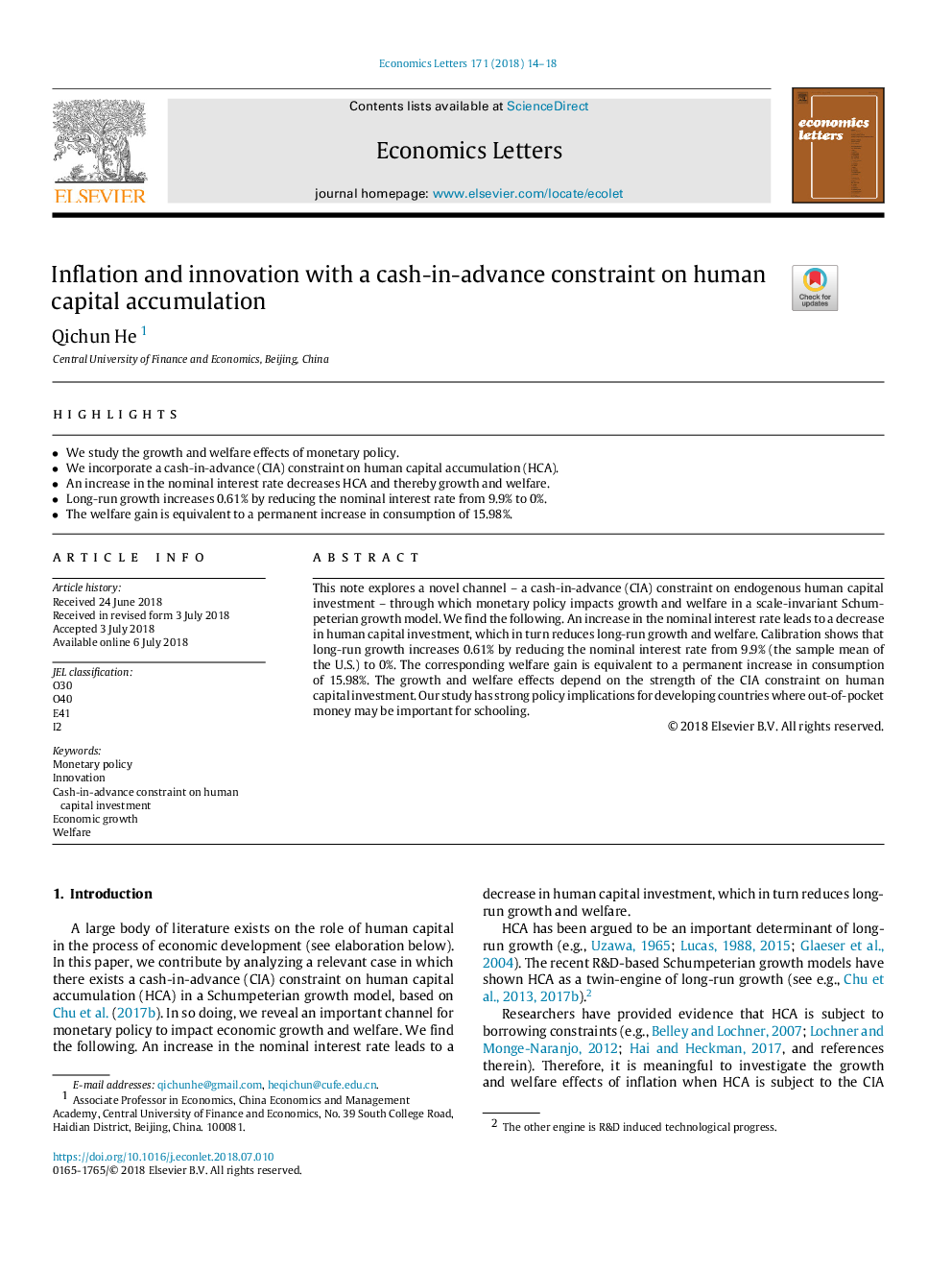| Article ID | Journal | Published Year | Pages | File Type |
|---|---|---|---|---|
| 7348411 | Economics Letters | 2018 | 5 Pages |
Abstract
This note explores a novel channel - a cash-in-advance (CIA) constraint on endogenous human capital investment - through which monetary policy impacts growth and welfare in a scale-invariant Schumpeterian growth model. We find the following. An increase in the nominal interest rate leads to a decrease in human capital investment, which in turn reduces long-run growth and welfare. Calibration shows that long-run growth increases 0.61% by reducing the nominal interest rate from 9.9% (the sample mean of the U.S.) to 0%. The corresponding welfare gain is equivalent to a permanent increase in consumption of 15.98%. The growth and welfare effects depend on the strength of the CIA constraint on human capital investment. Our study has strong policy implications for developing countries where out-of-pocket money may be important for schooling.
Related Topics
Social Sciences and Humanities
Economics, Econometrics and Finance
Economics and Econometrics
Authors
Qichun He,
